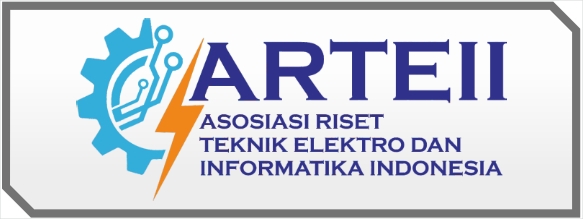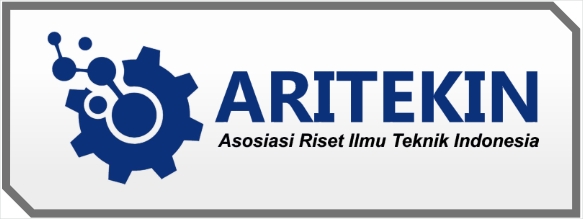Laundry Section Collaboation With Front Office Department In Conducting Guest Laundry Billing Process at Tentrem Hotel Semarang
DOI:
https://doi.org/10.55606/icesst.v2i2.280Keywords:
billing, front office, hotel, cooperation, laundryAbstract
This final project aims to describe the collaboration of laundry section with front office department and describe the constraints that occur between the collaboration of the laundry section and the front office department in conducting guest laundry billing process at the Tentrem Hotel Semarang. The existence of cooperation constraints between the Front Office and Housekeeping raises problems that can cause guest complaints. Therefore, it is necessary to have good quality cooperation between the front office and the laundry department in order to reduce work errors and guest complaints. The research method used is descriptive qualitative method through observation, interviews and retrieval of documentation. The results showed that the collaboration between the laundry section and the front office department went well and smoothly. With the laundry working closely with the front office department to provide information related to guest information that performs laundry services, namely ensuring communication between the front office department and the laundry runs smoothly including information given to guests regarding the clothes they are washing, ensuring there is no damage to guest clothes, always ensuring that laundry delivery to guests is correct and according to guest wishes, the Front Office provides complete information about rooms that benefit from free laundry and laundry Packages. In addition, the Laundry Section cooperation with the Front Office Department in carrying out the Billing process runs according to standard operating procedures. The procedures carried out involve guests, Laundry Attendant, Receptionist and Guest Service Center. In the guest laundry service, then the collaboration also involves Finance to finalize payments.
References
Bantulu, L. (2020). Membangun Komunikasi Efektif Antara Front Office Departement dengan Housekeeping Departement (Studi Kasus di Hotel Eljie Syariah Gorontalo). jurnal.ideaspublishing.co.id, 3-4.
Murhadi, & Nggelan, F. (2016). Perhitungan Jumlah Room Attendant Terhadap Waktu Pembersihan Kamar Di Housekeeping Department Sheraton Senggigi Beach Resort Lombok Nusa Tenggara Barat. Jurnal Sains Tarapan Pariwisata, 57.
Tingkat Penghunian Kamar Hotel (TPK) Hotel Bintang (Persen), 2023. (2023, June 7). Retrieved from Badan Pusat Statistik Kota Semarang: Url: https://semarangkota.bps.go.id/indicator/16/233/1/tingkat-penghunian-kamar-hotel-tpk-hotel-bintang.html
Anonim. (2014). Pengertian kerjasama menurut para ahli. [Online]. Diakses dari
http://www.duniapelajar.com/2014/07/29/pengertian-kerjasama-menurutpara-ahli/ (21
November 2015)
Anonim. (2015). Cara meningkatkan tanggung jawab. [Online]. Diakses dari
http://www.terapibawahsadar.com/?174,taking-responsibility (21 Desember 2015) Anonim. Kamus besar bahasa indonesia. [Online]. Diakses dari http://kbbi.web.id/
Arikunto. (2002a). Prosedur penelitian (Suatu pendekatan praktek). Jakarta:
Rineka Cipta. Arikunto. (2010b). Dasar-dasar evaluasi pendidikan (Edisi revisi). Jakarta:
Bumi Aksara.
Sukmadinata, N.S. (2010a). Metode penelitian pendidikan. Bandung: Remaja
Rosdakarya. Sukmadinata, N.S. (2012b). Metode penelitian pendidikan. Bandung:
Remaja Rosdakarya. Sukmadinata, N.S. (2013c). Metode penelitian pendidikan.
Bandung: Remaja Rosdakarya
Asfawi, Supriyono, dan M.G. Catur Yuantari. 2014. Dampak Usaha Laundry Terhadap
Tingkat Pencemaran Air Studi Kasus di Kelurahan Pindrikan Kidul (skripsi). Semarang: Universitas Dian Nuswantoro.
Eddy. 2008. Karakteristik Limbah Cair. Jurnal Ilmiah Teknik Lingkungan, Vol.2, No.2,
p.20. Effendi. 2008. Telaah Kualitas Air Bagi Pengelolaan Sumber Daya dan Lingkungan Perairan. Yogyakarta: Kanisius.
Gameissa, Mutiara Windika, dkk. 2012. Pengolahan Tersier Limbah Cair Industri Pangan
dengan Teknik Elektrokoagulasi Menggunakan Elektroda Stainless Steel. Bogor: Institut Pertanian Bogor. Holt, P. K. 2012. A Quantitative Comparison Between Chemical Dosing and Electrocoagulation. Colloids and Surfaces A: Physicochem. Eng. Aspects, 211: 233-248.
Hudori. 2008. Pengolahan Air Limbah Laundry dengan Menggunakan Elektrokoagulasi (skripsi). Bandung: Institut Teknologi Bandung.
Kamilul. 2008. Kelebihan dan Kekurangan Metode Elektrokoagulasi. Skripsi Program
Studi Kimia Jurusan Pendidikan Kimia FPMIPA UPI. Bandung: Tidak Diterbitkan.
Mardana, M. Y. A. 2007. Pengolahan yang Tepat bagi Limbah Cair.
(http://akademik.che.itb.ac.id/labtek/wp-content/upload/2007/08/modulpengolahan-air.pdf, diakses pada 30 Mei 2016).
Mollah, M. Y. A. 2004. Fundamentals, Present, and Future Perspectives of
Electrocoagulation. Journal of Hazardous Materials. B114:199-210.
Mukimin, Aris. 2006. Pengolahan Limbah Industri Berbasis Logam dengan Teknologi Elektrokoagulasi Flotasi (Tesis). Semarang: Universitas Dipenogoro.
Darsono, Agustinus. (1994). Tata Graha Hotel (Housekeeping). Jakarta: PT. Gramedia
Widiasarana Indonesia
Khasanah. (2014) Standarisasi Penataan Guest Supplies Dalam Meningkatkan Jumlah
Tamu Pada Hotel Brongto di Yogyakarta. AKPAR BSI Yogyakarta, Indonesia. Vol. V No. 1 Maret 2014
Kurniawan, Ari Fauzan. (2014). Pemanfaatan Education Hotel (Edotel) Sebagai Sumber Belajar Siswa Program Kompetensi Keahlian Akomodasi Perhotelan Di SMK
Negeri 4 Yogyakarta. PTBB FT UNY, Yogyakarta, Indonesia
Larasati, Sri. (2015). Hubungan Antara Kualitas Guru Dengan Prestasi Belajar Siswa
Pada Mata Pelajaran Housekeeping. STP AMTA Yogyakarta, Indonesia
Meiliyawati, Wida dkk (2009). Make-Up Room (Menyiapkan Kamar Untuk Tamu).
Akomodasi Perhotelan SMK Negeri 9 Bandung















